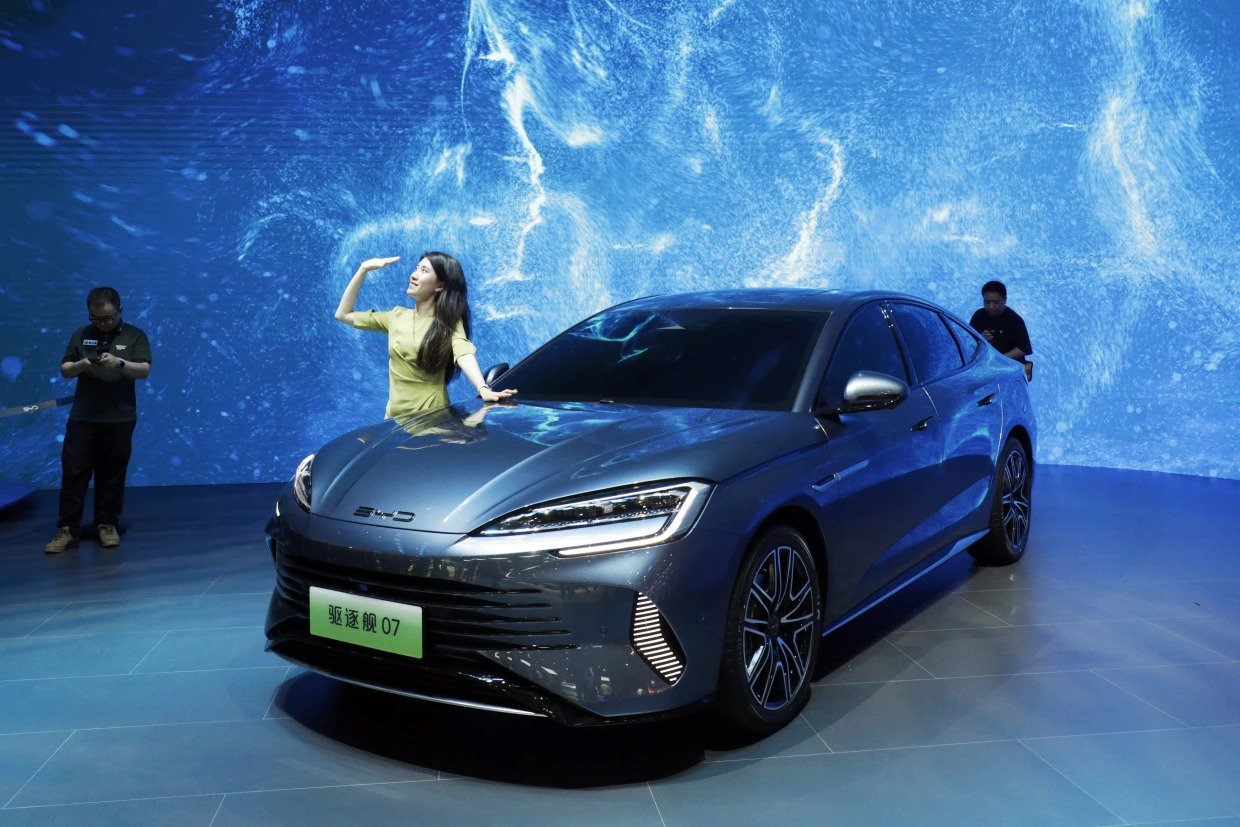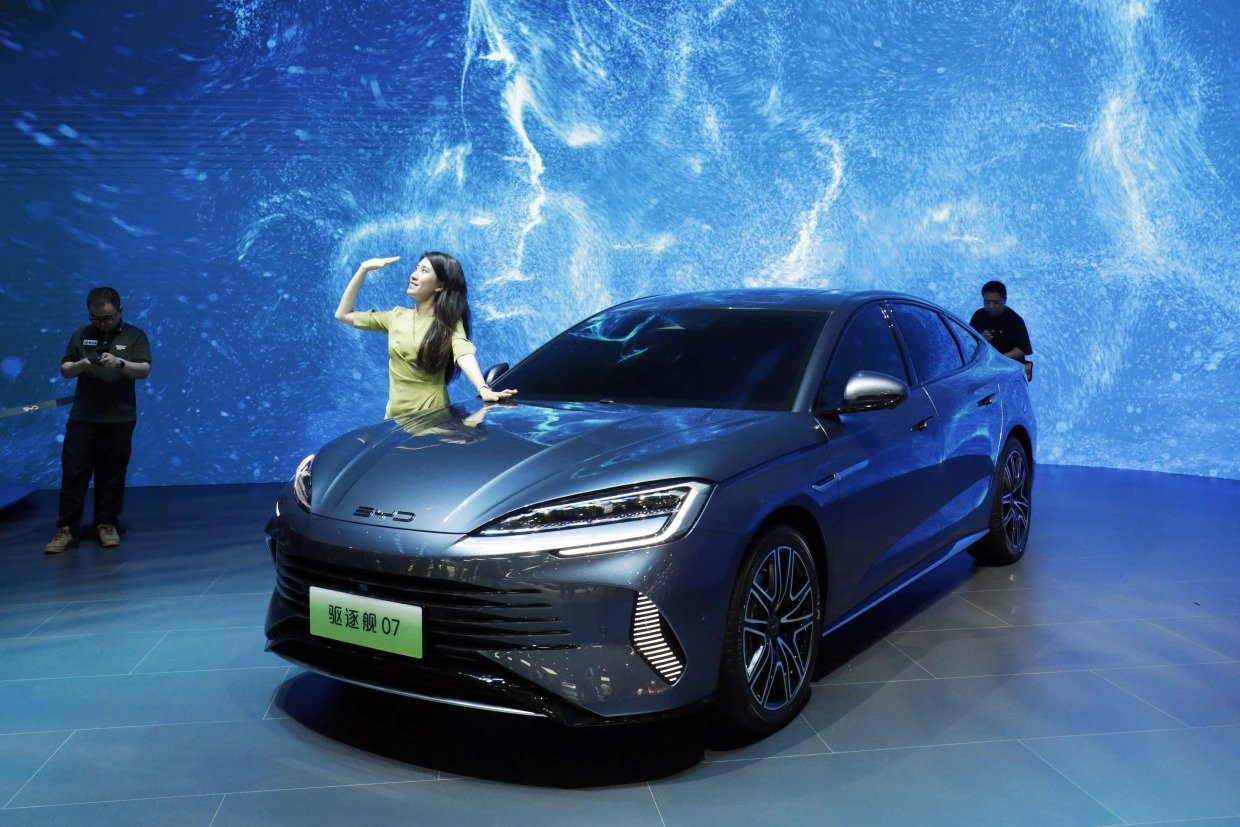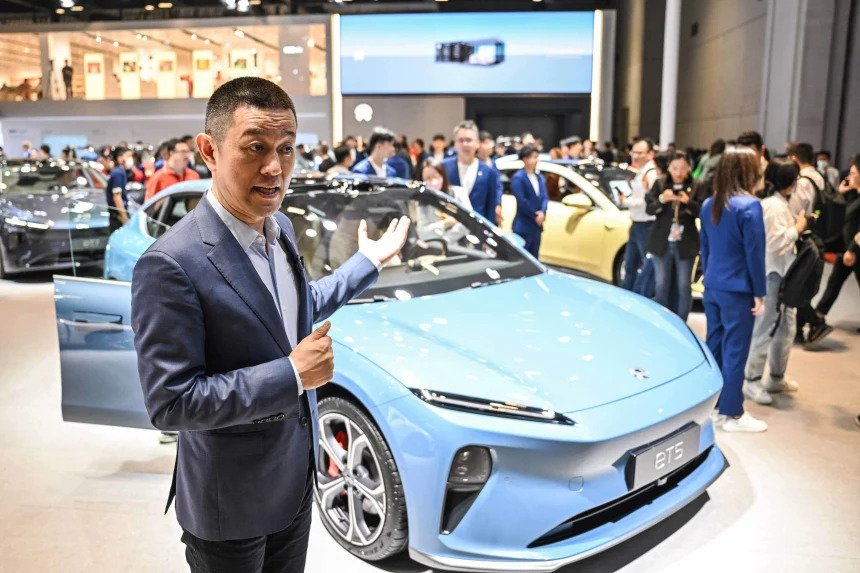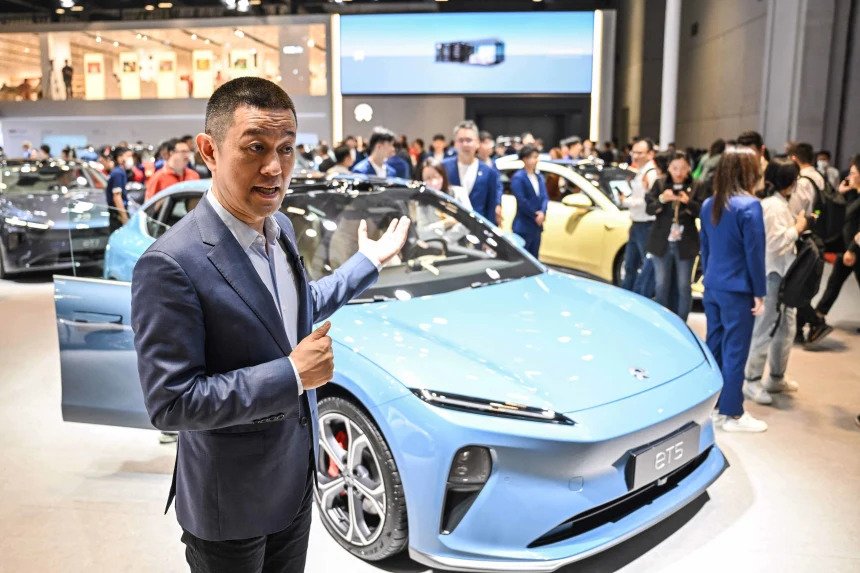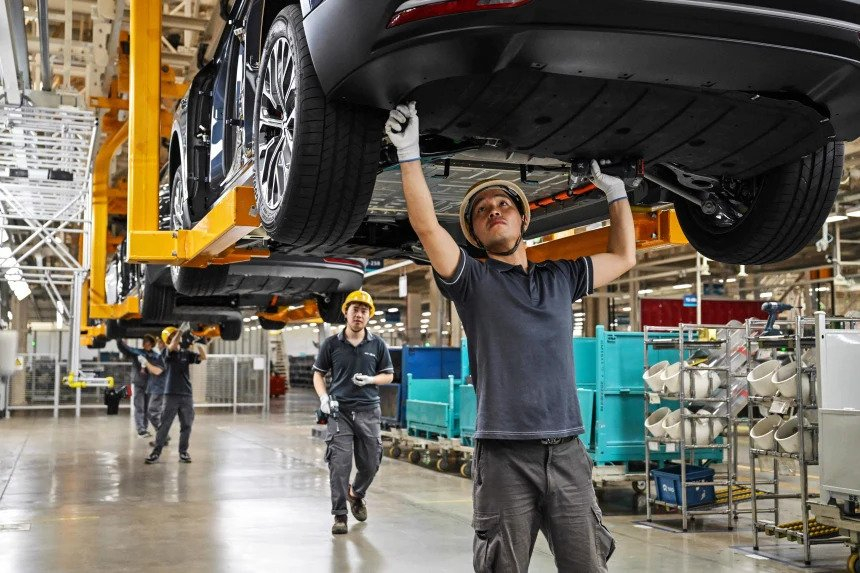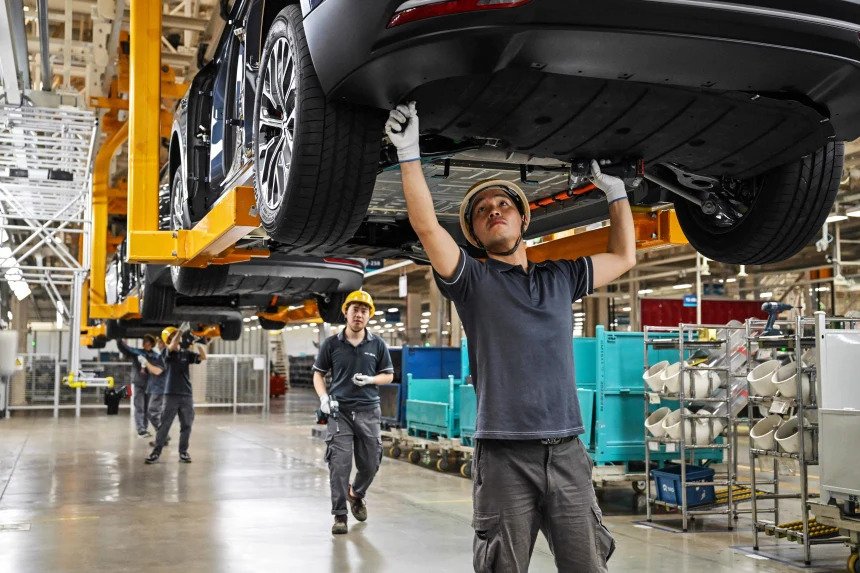Only a few years ago, China had an estimated 300 different EV makers, a number that analysts say will be winnowed down to a dozen or so in the coming years. Though local brands dominate China’s EV market, they also face competition from foreign automakers such as General Motors and Volkswagen that are trying to muscle in.
Like their counterparts in the U.S. and elsewhere, Chinese EV makers’ profitability is threatened by excess capacity and a price war set off in January by Tesla, which has a factory in Shanghai. A pledge this month by 16 automakers, including Tesla, to avoid “abnormal pricing” was retracted by the China Association of Automobile Manufacturers, which cited antitrust law.
Faced with pressures at home, China’s EV makers are now pursuing expansion abroad, especially in emerging markets. Last year, China’s exports of EVs increased 131.8% year on year to around 680,000 units, official data showed. Thanks in part to the surge in EV sales, China overtook Japan as the world’s top auto exporter in the first quarter of this year.
One place those exports are not going is the U.S., amid geopolitical tensions with China and efforts to strengthen U.S. domestic manufacturing.
“U.S. automakers are present in China, but there are no Chinese automakers present in the U.S.,” Mandal said.
Chinese industry leader BYD — a Shenzhen-based company whose name stands for “Build Your Dreams” and which is backed by American investor
Warren Buffett — now rivals Tesla as the world’s biggest seller of electric vehicles, including hybrids.
The Seagull, a subcompact hatchback that BYD unveiled at the Shanghai auto show, is the cheapest EV in the world at about $11,000, compared with $25,000 for a Toyota bZ4X and
$40,000 for Tesla’s top-selling Model Y.
Tesla CEO
Elon Musk, who laughed when asked about competition from BYD in a 2011 interview with Bloomberg, now says his views on the company have changed.
“That was many years ago,” he
wrote on Twitter in May. “Their cars are highly competitive these days.”
